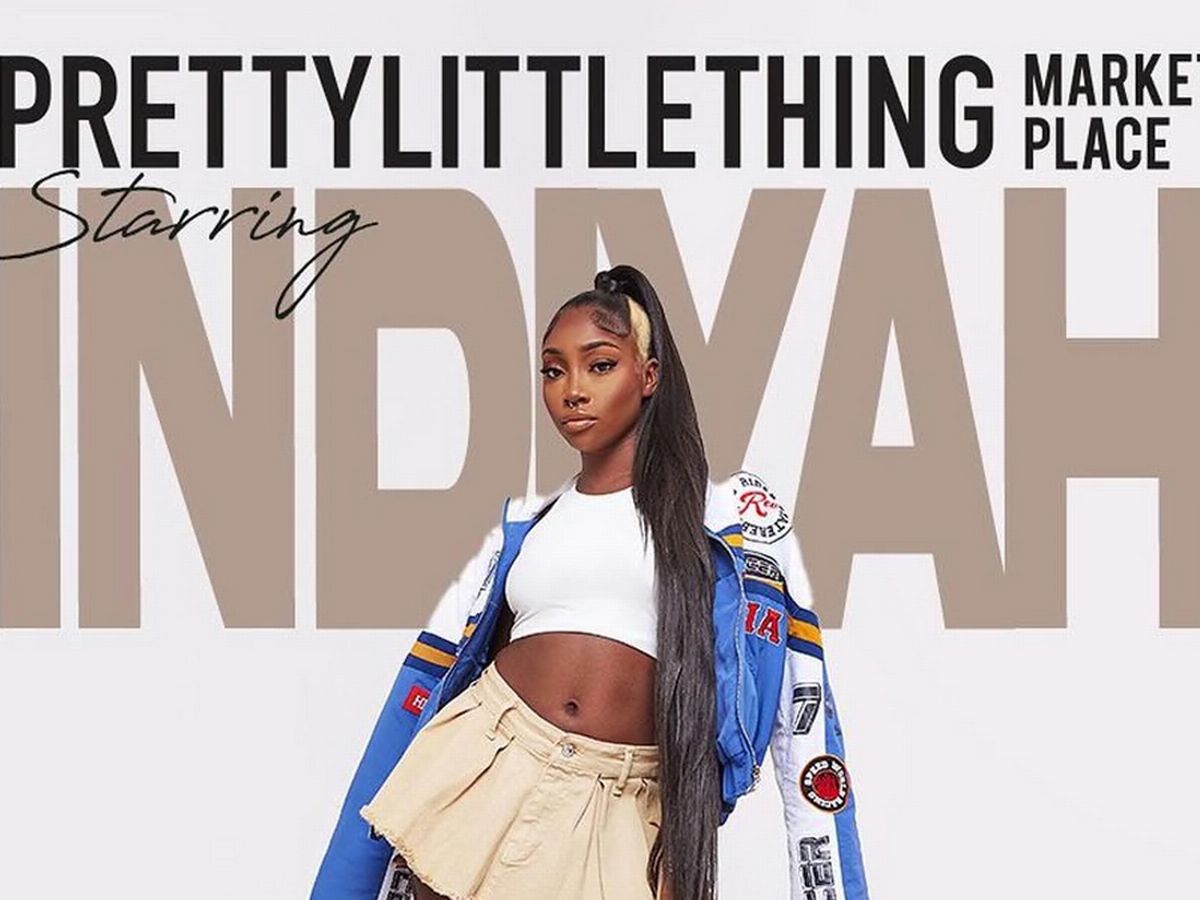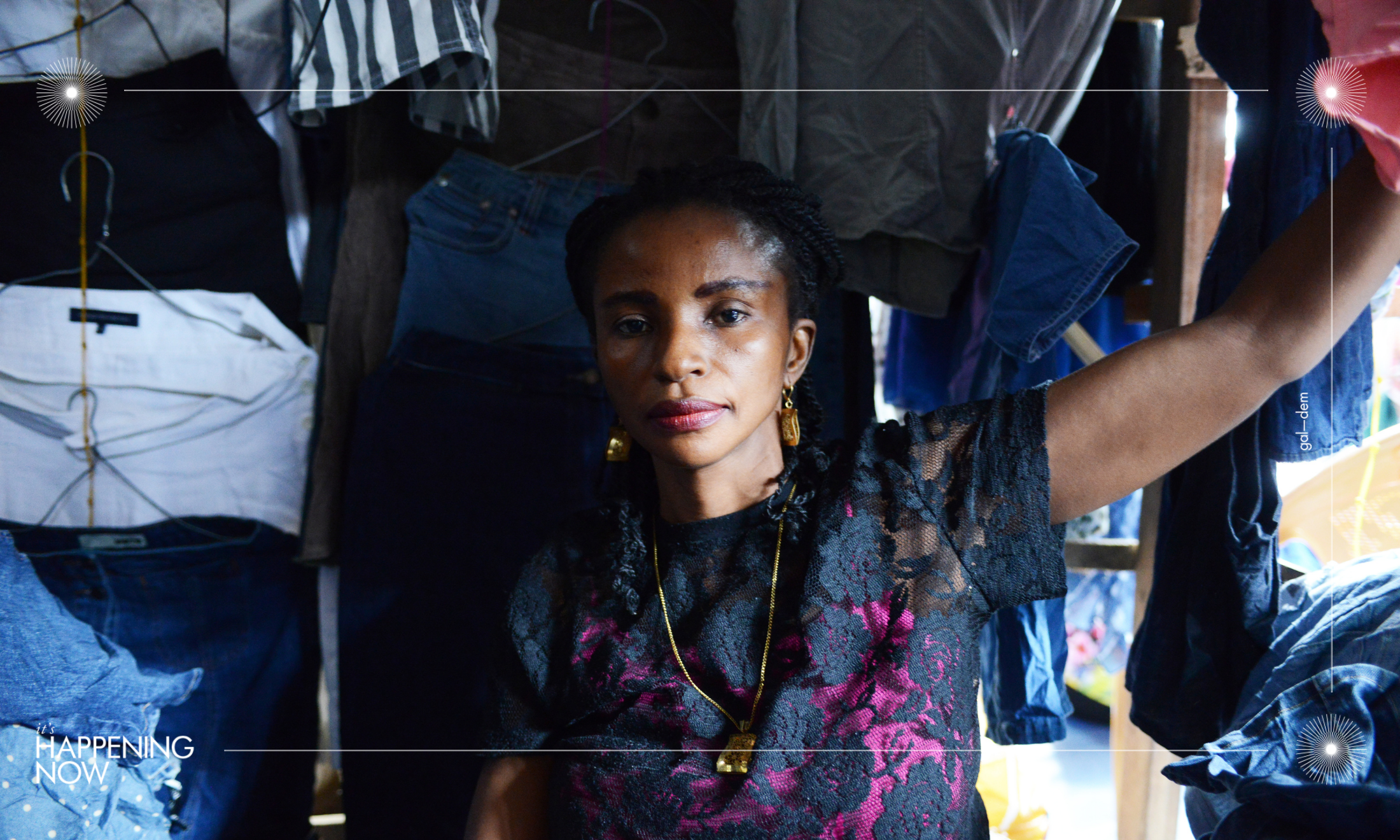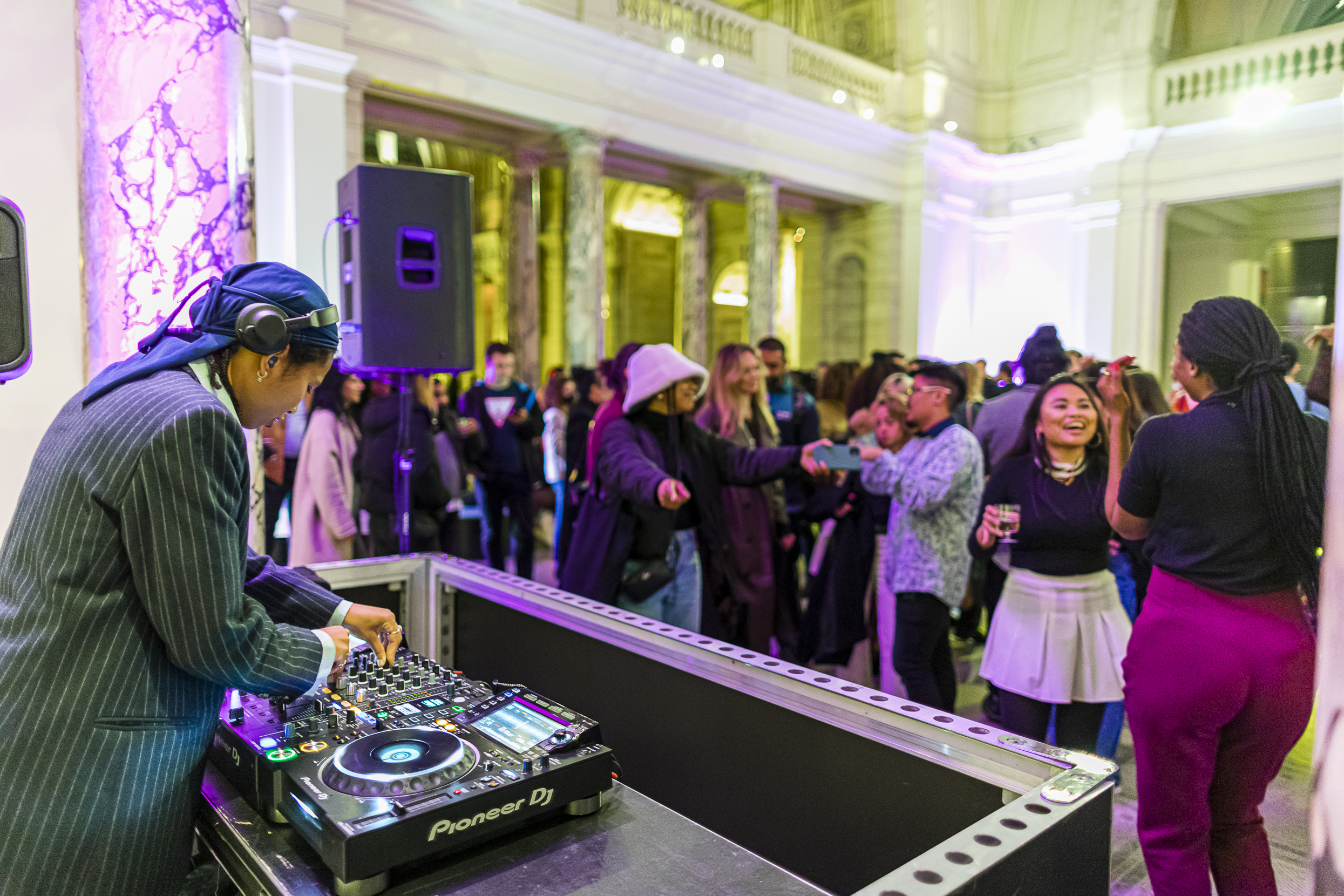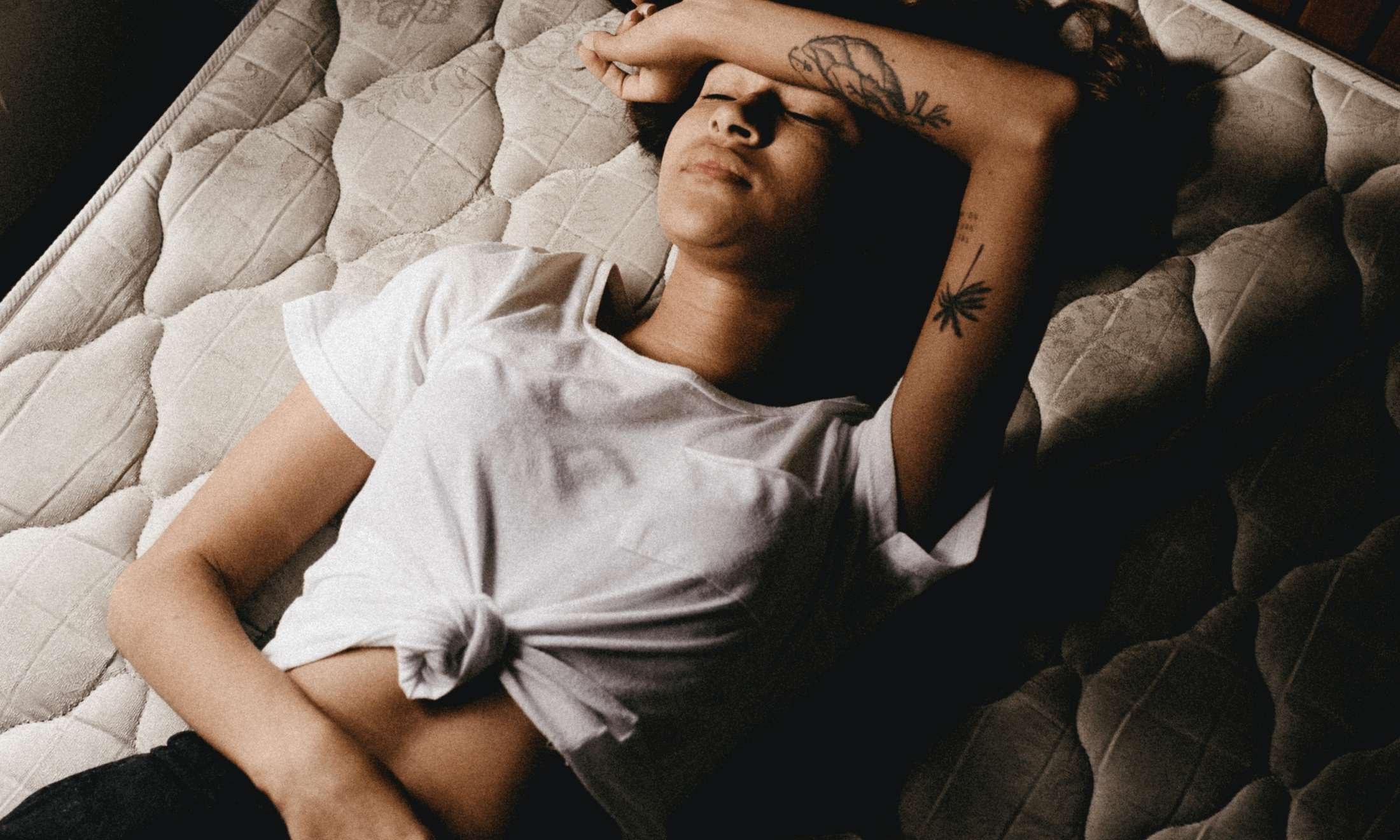
Illustration by Alice Skinner
Trigger warning: this article contains mentions of cutting
In this age of plastic-free grocery shops and keep cups, managing your periods sustainably and affordably is taking centre stage in the UK. 1.3 billion tampon applicators end up in landfill from the UK every year and sanitary pads are 90% plastic. So going organic or reusable seems like the obvious answer – that’s if you’ve got the choice.
Organic cotton pads and tampons are the logical sustainable swap, but reusable menstrual cups, cloth pads and period underwear are giving traditional disposable options a run for their money. A few years ago, eager to see what all the fuss was about, I trekked to a feminist concept store and purchased a pair of reusable period underwear. I was excited to test a more silky, aesthetically pleasing replacement for my white, crunchy, plastic-wrapped disposable pads. I was intrigued by the idea of never needing to buy period products again.
The underwear felt great, but I often leaked through them on heavy period days. At the time I wasn’t even thinking about sustainability, but in hindsight finding this underwear was my first experience of the lengthy process of making a sustainable swap. First researching the brand and figuring out how to get hold of it in the UK, then getting myself to the temporary store, trying the product and finally finding it meant more hassle, time and money than a disposable option.
“15% of women aged 14-21 are still struggling to afford period products at all, let alone plastic-free ones”
A popular choice, menstrual cups can last up to 10 years and therefore significantly reduce period expenses and plastic waste – but what if they don’t work for you? And beyond the logistics, the experiences of people from different cultures and backgrounds which could prevent easy and sustainable periods are so often left out of the discussions surrounding period products – female genital mutilation being one.
FGM is the deliberate mutilation of female genitalia – Type 3, known as infibulation, narrows the vaginal opening by cutting and sewing over the outer labia and causes severe pain during menstruation known as dysmenorrhea. Unless survivors of Type 3 FGM undergo defibrillation, in many cases it’s impossible for them to use tampons or menstrual cups. (Although FGM survivors looking for sustainable options could opt for reusable pads and underwear).
Bethel Tadesse, founder of Hidden Scars, brings marginalised experiences to the forefront of conversations about sexual and menstrual health by addressing both FGM and period poverty. I spoke to Bethel on a chilly Friday evening in a Notting Hill café, keen to find out more about the cultural barriers many menstruators face in exploring different period products.
“Even with tampons, people in my family don’t want to use them … because it’s something you have to insert, and that’s a whole different thing.” This aversion to using tampons is unfortunately prevalent far beyond the borders of Ethiopia, where Bethel’s family are from. There’s a widespread fear across the world that period products used internally can cause loss of virginity by breaking the hymen. These deeply embedded beliefs linking the hymen and virginity to social status present real challenges in education around menstrual cups, their environmental and financial benefits, and menstrual and sexual health more generally.
“It was so hard to distribute [menstrual cups] to people – they just didn’t like the idea. So I decided to take some with me to a village in Ghana, and it was a complete no-no,” Bethel says. She explains that she thinks people who have grown up in the global south “are more oriented around family anyway and will trust family first, which is a huge reason for FGM, and a huge reason why people probably won’t really use tampons and menstrual cups because of things that they’ve heard from such a young age.”
The menstrual cup’s popularity score increased from 21 to 83 from 2013 to 2018 in the UK, but it’s not just FGM survivors that this product might not work for. Plan UK, which only looked at women and girls found 15% of women aged 14-21 are still struggling to afford period products at all, let alone plastic-free ones. On top of the initial cost, if you use a menstrual cup you need access to a private and sanitary environment to empty and sterilise it. Likewise, reusable cloth pads and period underwear require running water and laundry facilities to maintain. These are major obstacles for homeless people in the UK. The 5% luxury tax has already made access to safe period products a challenge for everyone, but especially people with low-incomes. If you menstruate, you’re already made to feel enough shame about periods without the pressure of managing them sustainably.
Period shame can take varying forms across different cultures, and for some people, it can result in a complete lack of conversation around period products. I was shocked to find that of 78 asylum-seekers surveyed by Bloody Good Period (BGP) and Women for Refugee Women, 75% had struggled to access period products, often for extended periods of time. But on further reading reality only hit me harder: if the state grants subsistence to asylum-seekers, it’s at £37.75 a week – 46% of women seeking asylum experience destitution more than once after entering the country.
“A life void of plastic is neither attainable nor a top priority for all people with periods”
All four women testifying in the report felt shame and embarrassment while trying to manage their periods, and three of them did so with tissues, towels and pieces of clothing whilst living destitute. We can’t shame people for “ruining the planet” if they can only use disposable, non-organic period products. For some, it’s survival at the forefront of their minds, not sustainability. As for the 49% of girls missing entire days of school on their periods in the UK, they’ll take what they can get if their schools take up the government on its free period product initiative.
Stigma and initial price aside, the menstrual cup wins over all other period products in terms of cost, environmental impact and reliability. Compared with using 12 sanitary pads per period, the consistent use of a menstrual cup is estimated to make up 5% of the purchase costs and 0.4% of the plastic waste. Menstrual cup users from 43 studies spanning across low, middle and high-income countries, also saved water and money spent on laundry as they experienced less leaking.
Consistent menstrual cup use resulted in decreases in stress regarding staining and leakage, and improvements in school attendance, concentration and performance. We need children to stay in school so they can save the world, and reusable period products have the power to drastically improve school attendance and performance across the globe.
Luckily there are organisations implementing long-lasting, eco-friendly solutions to period poverty that give me hope, but they, unfortunately, can’t reach everyone. A life void of plastic is neither attainable nor a top priority for all people with periods. Whether it be on cultural, physiological or economic grounds, we can’t eco-shame asylum seekers, FGM survivors, homeless people and low-income people, or anyone else for the period product they choose, if even afforded the luxury of choice.
Instead, for those who can, donate period products where possible, support organisations making change, and raise awareness of the barriers to sustainable period products faced by marginalised groups. Encourage and educate anyone grappling with navigating period management in a labyrinth of cultural norms and financial stresses. Start open and informed conversations about periods using educational resources such as Menstrupedia; nobody deserves to feel embarrassed by them when there are health risks involved. Refuse to stay silent – all people with periods deserve safe management solutions in order to live full, healthy lives.
Ruby Cup functions on a buy-one-donate-one system. ActionAid circulates menstrual cups and trains people in Malawi to make safe, reusable cloth pads. Freedom4Girls runs workshops in London where people can learn to make their own reusable cloth pads.









